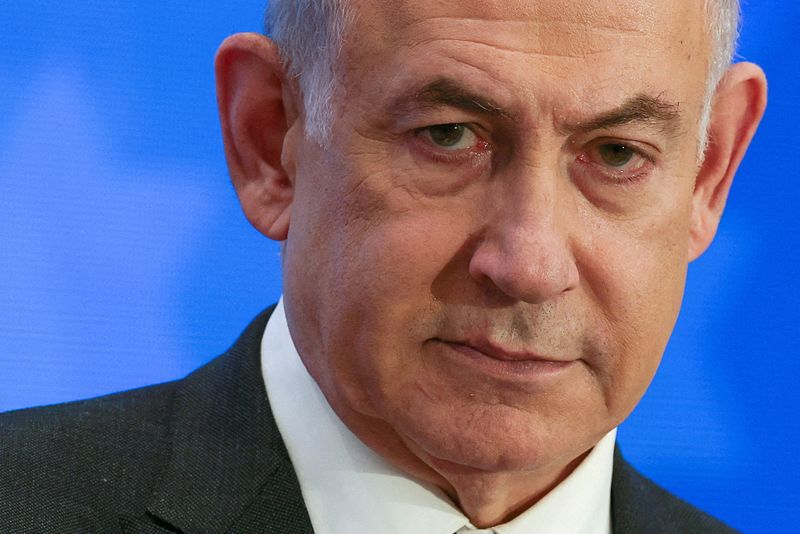By Stephanie van den Berg
THE HAGUE (Reuters) – The International Wrongdoer Court district attorney’s workplace has actually asked for arrest warrants for Israeli Prime Minister Benjamin Netanyahu and his defence chief, and likewise for 3 Hamas leaders for supposed war criminal offenses and criminal offenses versus humankind.
Here is a take a look at what occurs next, and how the ICC district attorney’s relocation may affect diplomatic relations and other lawsuit concentrated on Gaza.
WHAT TAKES PLACE NEXT AT ICC?
District attorney Karim Khan’s demand goes to a pre-trial chamber. The chamber will be made up of 3 magistrates: administering judge Iulia Motoc of Romania, Mexican judge Maria del Socorro Flores Liera and judge Reine Alapini-Gansou of Benin.
There is no due date for judges to choose whether to release arrest warrants. In previous cases, judges have actually taken anywhere from simply over a month to numerous months.
If the judges concur there are “sensible premises” to think war criminal offenses or criminal offenses versus humankind have actually been devoted, they will release an arrest warrant. The warrant needs to call the individual, the particular criminal offenses for which an arrest is looked for and a declaration of realities which are declared to make up those criminal offenses.
Judges can change arrest warrant demands and grant just parts of what the district attorney is looking for. Charges can likewise be altered and upgraded later on.
Israeli and Hamas leaders have actually dismissed claims of devoting war criminal offenses, and agents of both sides criticised Khan’s choice.
WILL NETANYAHU AND THE HAMAS LEADERS BE APPREHENDED?
The ICC’s starting Rome statute integrated with jurisprudence from previous cases including arrest warrants versus sitting presidents require all 124 ICC signatory states to apprehend and turn over any private topic to an ICC arrest warrant if they set foot on their area.
Nevertheless, the court has no ways to impose an arrest. The sanction for not detaining somebody is a recommendation back to the ICC’s assembly of member states and eventually a recommendation to the U.N. Security Council.
CAN AN ICC EXAMINATION OR WARRANT BE STOPPED BRIEFLY?
The court’s guidelines permit the U.N. Security Council to embrace a resolution that would stop briefly or postpone an examination or a prosecution for a year, with the possibility of restoring that forever.
In previous cases where a state has actually overlooked its commitment to apprehend a private dealing with an ICC warrant, they have actually gotten a procedural slap on the wrist at many.
CAN NETANYAHU AND HAMAS PRIMARY YAHYA SINWAR STILL TRAVEL?
Yes they can. Neither the application for a warrant nor the issuance of an ICC arrest warrant curbs a person’s flexibility to take a trip. Nevertheless, as soon as an arrest warrant has actually been provided, they run the risk of arrest if they take a trip to an ICC signatory state, which might affect their decision-making.
There are no limitations on politicians, legislators or diplomats from conference people with an ICC arrest warrant versus them. Politically, nevertheless, the optics of this might be bad.
WILL THIS APPLICATION FOR WARRANTS AFFECT OTHER CASES?
Not straight, however possibly indirectly.
The ICC application is a different matter to, for instance, lawsuit requiring an arms embargo versus Israel or South Africa’s efforts at the International Court of Justice to look for a stop to Israel’s offensive on Rafah.
If the judges choose there are sensible premises to think Netanyahu and Defence Minister Yoav Gallant are devoting war criminal offenses and criminal offenses versus humankind in Gaza, it might enhance legal difficulties requiring an arms embargo somewhere else as various states have arrangements versus offering arms to states who may utilize them in manner ins which break worldwide humanitarian law.
(Reporting by Stephanie van den Berg; Modifying by Richard Lough and Alison Williams)
